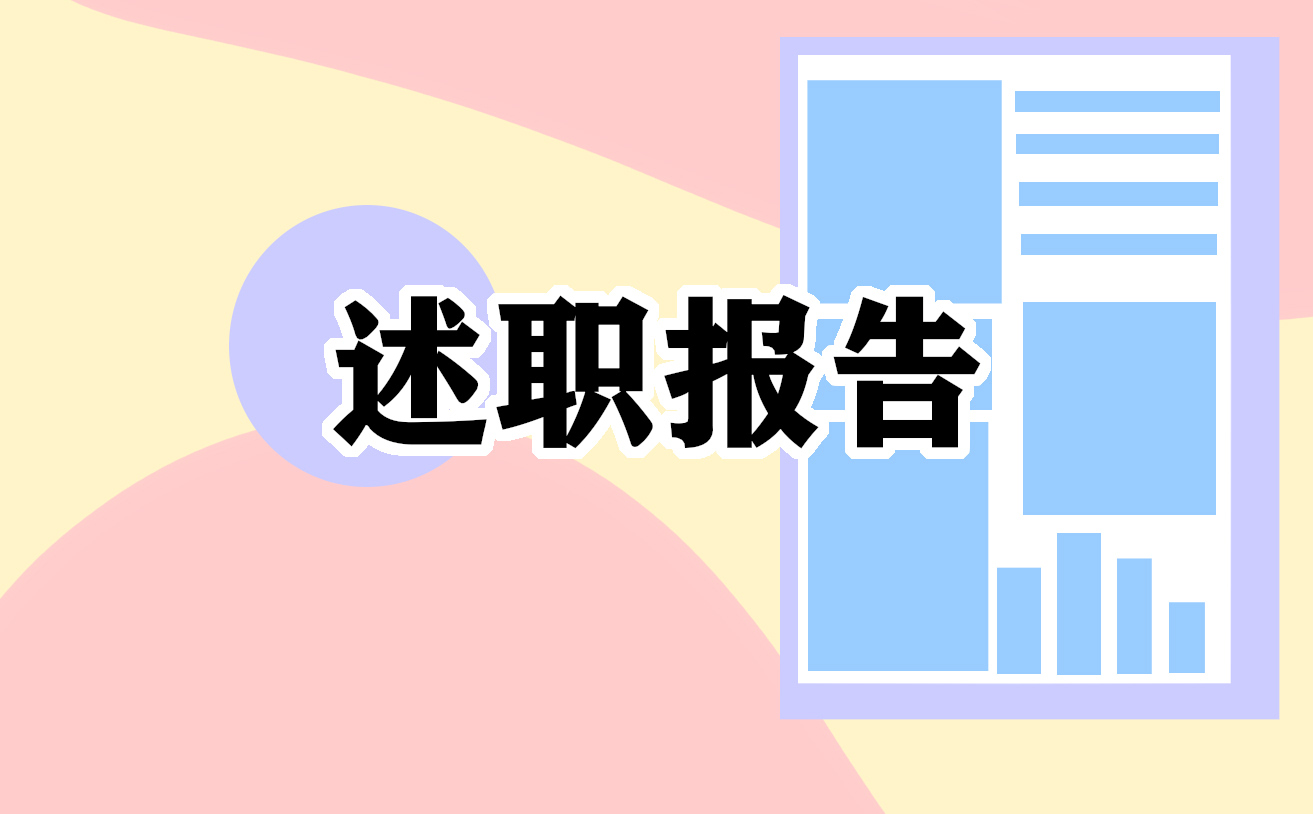届天津市高考英语压轴卷及答案1 第I卷 第一部分听力(共两节,满分30分) 第一节:(共5小题;每小题1分,满分5分) 听下面5段对话。每段对话后有一个小题,从题中所给的A,B,C三个选项中下面是小编为大家整理的届天津市高考英语压轴卷及答案(全文完整),供大家参考。

届天津市高考英语压轴卷及答案1
第I卷
第一部分 听力(共两节,满分30分)
第一节:(共5小题;每小题1分,满分5分)
听下面5段对话。每段对话后有一个小题,从题中所给的A, B,C三个选项中选出最佳选项,并标在试卷的相应位置。听完每段对话后,你将有10秒钟的时间来回答有关小题和阅读下一小题。每段对话仅读一遍。
1. What does the woman think of the examination paper?
A. Difficult. B. Easy. C. Proper.
2. Where will the concert be given?
A. In Vienna. B. In Beijing. C. On the street.
3. How much does the woman have to pay if she stays for 2 days ?
A. $24. B. $20. C. $12.
4. What can we learn from the conversation?
A. The woman doesn’t like pear juice.
B. The man broke the juice bottle.
C. The man was looking for pear juice.
5. What is the woman?
A. A journalist. B. A film-maker. C. An actress.
第二节: (共10小题;每题1.5分,满分15分)
听下面几段材料。每段材料后有几个小题,从题中所给的A,B,C三个选项中选出最佳选项,并标在试卷的相应位置。听每段材料前,你将有时间阅读各个小题,每小题5秒钟;听完后,各小题将给出5秒钟的作答时间。每段材料读两遍。
听下面一段对话,回答第6至8题。
6. What are the speakers mainly talking about?
A. Hobbies. B. Cameras. C. Photos.
7. How many hobbies does the man have?
A. 2. B. 3. C. 4.
8. What kind of photos does the man take ?
A. Art photos. B. Color photos. C. Black and white photos.
听下面一段对话,回答第9至11题。
9. Where did Miss Wang lose her purse?
A. In a restaurant. B. In her room. C. In the office.
10. What does Miss Wang want to do after getting back her purse ?
A. Thank the man by giving him some tips.
B. Say goodbye to the man.
C. Write a letter of thanks.
11. What is missing in Miss Wang’s purse?
A. A check. B. All the money. C. Nothing.
听下面一段独白,回答第12至15题。
12. What is the speaker explaining?
A. A school timetable. B. A book review. C. A study plan.
13. What will the listeners practice on Thursday morning?
A. Reading and writing. B. Listening and speaking. C. Grammar and computer.
14. When is the library available to listeners every weekday?
A. From 3:00 to 6:00 pm. B. From 3:00 to 6:30 pm. C. From 3:30 to 6:00 pm.
15. What is the speaker?
A. A librarian. B. A baby sitter. C. An announcer.
第二部分:英语知识运用(共两节, 满分45分)
第一节:单项填空(共15小题;每小题1分,满分15分)
从A、B、C、D四个选项中,选出可以填入空白处的最佳选项。
例:Stand over there______ you’ll be able to see it better.
A. or B. and C. but D. while
答案是B。
16.—No words are strong enough to express our thanks for your coming.
—____.
A. It’s a pity. B. It’s my pleasure. C. With pleasure. D. Never mind.
17.----Peter works hard and is considered to be the presidential candidate(候选人) of the class.
------________________________ Tom.
A. So does B. So is C. It’s the same with D. So it was with
18. The boy has great ____ in sports. Trained properly, he’ll make a first-class athlete in time.
A. motivation B. influence C. potential D. possibility
19. The dog ____attacked passers-by and therefore was kept on a chain by the owner.
A. eventually B. fortunately C. frequently D. similarly
20.-I’ve decided to compete in the race, but I’m afraid I won’t be the best.
-____. You never know until you try.
A. Enjoy yourself B. Go for it C. Do as you like D. Take your time
21.Into the dark apartment ____, who was quite surprised when everyone shouted “Happy birthday!”
A. did David walk B. David did walk
C. David walked D. walked David
22. Tom makes ____a rule to give a summary of the new important points after class.
A. that B. what C. them D. it
23. —Lisa, what do you think of the job of being a nurse?
—In my opinion, it ____ be difficult sometimes though it seems easy.
A. should B. can C. must D. need
24. Our English teacher told us to find out ____the differences between American English and British English lie.
A. where B. how C. what D. which
25. Grandma does all he r own shopping and cooking—I have never seen ____aged person.
A. an independent B. a more independent
C. the most independent D. the more independent
26.____ to everyone the importance and value of these historic sites, the government
has strengthened regulations to protect them.
A. To stress B. Stressing C. Having stressed D. Stressed
27. He asked who was able to ____ a good solution to this problem.
A. get along with B. catch up with C. come up with D. go on with
28. Employers were unwilling to offer him a job____ he had been in prison.
A. when B. though C. as D. unless
29.We are hoping for support from Mr. Webster, without ____support we can’t make it.
A. which B. whose C. what D. that
30.We would rather our daughter ____at home with us , but it is her choice, and she is not a child any longer.
A. would stay B. has stayed C. stayed D. stay
第二节 完形填空(共20 小题;每小题1.5 分,共30 分)
阅读下面短文,掌握其大意,从每题所给的A、B、C、D 四个选项中,选出最佳选项,
并在答题卡上将该项涂黑。
Speaking Up
I never looked up when my friends were talking and joking about the ratarded (智障的) boy a few tables away. It didn’t even cross my mind that he might feel 31 when people whispered about him. So I just let them talk.
Then came the day when I learned my little brother Martin’s testing for autism (自闭症) came out positive (阳性). I had never thought about him like that. I broke 32 , crying.
Everything had just changer. He was no longer a(n) 33 little boy.
Over time, I was able to accept his 34 a little more. We had to 35 because Martin needed treatment. So Martin and I both started at a new school. One day, I was standing in the bus line waiting when a “ short ” bus (for the retarded) came and 36 up some kids. The children in the other line started making 37 about the “ retarded ” on that bus and I felt a 38 feeling in my heart. I said quietly that those comments we ren’t very nice, 39 no one listened.
My family moved again. In the new school I got a 40 to speak up pretty soon. That day, in a band class, my teacher 41 our playing to make some comments, “ …Guys, we’re playing like the kids on the short bus! Come on! ”
The entire room was laughing loudly. I felt very 42 . Then, I raised my hand. I wasn’t
sure what I was going to say but I wanted to be heard.
The whole class 43 down. My mouth opened and this came out: “ I don’t think we
should make fun of the short bus, because there are people on that bus who have a lot in common with us and have the same feelings as we do.” I could feel my 44 getting louder. “ So I would 45 it if you didn’t make fun of them.”
The room was very quiet and everyone stared at me. My teacher 46 for his words and then started the song again. At the end of the class, everyone was giving me strange looks. But I didn’t 47 , because I knew three things: I had spoken the 48 , I had taught everyone something, and while everyone in the classroom was being a follower, I had 49 to take a different path since I wanted to become a 50 and a role model.
31.A.amazed B.hurt C.uncertain D.cold
32.A.off B.in C.down D.away
33.A.normal B.noisy C.outstanding D.impressive
34.A.pain B.interest C.opinion D.illness
35.A.change B.move C.quit D.study
36.A.set B.took C.brought D.picked
37.A.jokes B.complaints C.choices D.discoveries
38.A.violent B.strange C.confusing D.clear
39.A.because B.if C.but D.so
40.A.chance B.position C.topic D.point
41.A.encouraged B.bothered C.enjoyed D.stopped
42.A.bad B.embarrassed C.tense D.guilty
43.A.sat B.slowed C.quieted D.looked
44.A.pace B.voice C.pulse D.breath
45.A.excuse B.appreciate C.stand D.permit
46.A.apologized B.fought C.allowed D.argued
47.A.understand B.notice C.return D.care
48.A.wisdom B.importance C.matter D.truth
49.A.helped B.decided C.agreed D.hoped
50.A.reporter B.thinker C.leader D.trainer
第二部分:阅读理解(共20小题;每小题2.5分,满分50分)
阅读下列短文,从每题所给的A、B、C、D四个选项中,选出最佳选项。
A
Countless people long to make a difference this holiday season, yet they don’t realize that opportunities to make a difference are everywhere. Here are some ideas to get you started.
Organize a blank drive
It is cold outside, but imagine how thousands of homeless people may feel without a home of their own, or even a blanket to keep them from the cold. Organize a blank drive for your local homeless, and ask around for donations!
Practice random acts of kindness
I’ll never forget the time when I went to pay for my Dr. Pepper, but the server resisted, saying my bill was paid by an anonymous (匿名的) guest. It’s this random act of kindness that restores my faith in humanity. Bless someone by paying for their drink at Starbucks, or praising them! If you live somewhere where it snows, shovel your neighbor’s snow out of their driveway for them! Whether it is as simple as praise or as complex as paying the bill, you’ll never know how far your impact will reach.
Say thank you
Just a simple thank-you can make somebody’s day, especially if they feel like their work is never noticed. Cultivate(培养)a smile on their face by being sincere and grateful for all that they do.
Use your talents to help the community
The best way to show your appreciation for people is by using the talents and skills you have to bless others. For me, I love to coordinate(协调)events and write , and so my way of reaching out to the community is through writing articles and creating awareness about problems we face today. If you can bake, make some delicious cookies for people to enjoy! If you can knit, put your talents to use by making clothes for children in foster care. Any talent can be used to help the community in meaningful ways.
Wish you a happy, healthy and helpful holiday season.
51. If you join a blank drive, you can _________.
A. collect donations for the homeless people B. bring a blanket to go on a trip
C. buy a home for homeless people D. keep yourself from the cold
52. How did the author restore his faith in humanity?
A. He helps others B. He often blessed others
C. He got help from others D. He got praised by others
53. The underlined phrase “make somebody’s day” is to_________.
A. make someone feel grateful all day
B. do something unnoticed by people
C. make someone feel good all day
D. help someone to solve problems
54. What is the author’s talent?
A. Sewing B. Writing C. Baking D. Knitting
55. Which of the following can be the best title for the passage?
A. Make a Difference in Your Holiday Season B. Make the Best of Talent
C. Enjoy Your Holiday Season D. Help Others in Need
B
Enrique Iglesias is a most successful singer! Born in 1975 in Madrid, Spain, Enrique is the child of the famous singer Julio Iglesias. Enrique’s mother is a journalist. His parents divorced in 1978. Although Enrique lived with his mother, she sent him to live with his father because of concerns about he r son’s safety. Enrique wanted to be a singer secretly, he didn’t wish his father to know that and didn’t want to live under his shelter. He sought his dream on his own.
Enrique released(发行) his first album “Enrique Iglesias” in 1995. This album had a collection of rock ballads(民谣) and five singles from it went straight to the top spots in Latin music. This album was followed by another “Vivir” in 1997. Three singles from this album occupied the top spots on the Latin charts yet again! Enrique also found himself nominated(提名) for the “Favorite Latin Artist” at the American Music Awards. By 1998, he had released his 3rd album, “Cosas Del Amor”. This year Enrique won the “Favorite Latin Artist”. “Bailamos” got him great fame. One of the songs in this album was also used in a movie. With the success of “Bailamos”, Enrique now already had many loyal fans. The album, “Enrique”, was released in 1999.
The year 2001 brought more success for him. His album, “Escape” had a few singles that reached the top spots. Enrique became a household name. This album is his biggest successful album so far. “Hero” and “Don’t Turn Off the Lights” soon turned Enrique into a super star. His next release in 2002 was a Spanish album “Quizas”. This album brought Enrique a “Latin Grammy Award” for the Best Pop Vocal Album. In 2007, he released another album “Insomniac” and the song “Do You Know” became an instantly popular song.
56. After his parents divorced, Enrique was sent to his father’s because _________.
A. he could be protected from some dangers
B. he could learn singing from his talented father
C. his mother would be able to focus on her career
D. his father could teach him how to behave correctly
57. Enrique didn’t tell his father about his dreaming of becoming a singer because he __________.
A. wanted to try a new singing style
B. hated his father for his carelessness
C. didn’t want to benefit from his father’s fame
D. planned to give his father a surprise when he succeeded
58. Which of the following albums has a song adopted in a movie?
A. “Vivir B. “Bailamos” C. “Enrique Iglesias”. D. “Cosas Del Amor”.
59. The third paragraph is developed mainly by _______.
A. following the order of his albums’ influence
B. *yzing the style of his albums
C. making comparisons of his albums
D. following the order of time
60. What would be the best title for the passage?
A. Enrique Iglesias’ lucky life
B. Biography of Enrique Iglesias
C. Enrique Iglesias’ secret to success
D. Enrique Iglesias’ wonderful singing skills
C
Parents do need to teach their kids financial responsibility and that money is earned. Still, many child-development experts agree that tying a child’s allowance to chores can be a slippery slope. Here’s why.
Susie Walton, master instructor at Peace in Your Home advises to keep chores and allowances totally separate. “Allowance is one thing. When it comes to chores, life skills, responsibilities¬-that’s a whole different thing.” says Walton.
Walton says, “When kids aren’t doing a chore, you don"t say, ‘well, there goes your allowance.’ You’re going to sit them down and ask what’s going on. ‘We are a team. We are a family. We’ve got to have them done.’”
Besides, by paying children for chores with an allowance, you’ll also be sending the message that work isn"t worth doing unless they’re getting paid for it.
There are times when it would make sense to pay kids for chores. Most financial and child-development experts agree that it’s a fine idea to pay children money for extra jobs that are outside their normal set of chores, such as washing windows, washing the car or helping to clean out the garage-especially if the child is saving for a big item. This may even develop an entrepreneurial (企业家的) spirit to think outside of the box to earn money.
For parents who are concerned that their children won’t learn the value of a dollar if the allowance isn’t tied to household chores, note that there are still plenty of money management skills to be learned from a straight allowance. Depending on the age, kids can be made responsible for paying for their own toys or snacks. Some parents even require that kids set aside a percentage of their allowance toward savings.
“I really like having my own money,” says Kevin, 9. “It’s up to me if I want to buy the cheap toy now, or save and get the better toy.” And that’s a good lesson to learn at 9 years old.
No matter which allowance route you take in parenthood, kids will feel empowered by being able to handle their own money.
61. Which of the following would Susie Walton most probably agree with?
A. A child’s allowance shouldn’t be tied to chores.
B. Kids shouldn’t be forced to do chores.
C. Doing chores teaches kids the value of work.
D. Kids should be paid for doing chores.
62. According to Susie Walton, if kids don’t do chores, parents should ________.
A. teach them the entrepreneurial spirit
B. talk to them about family responsibilities.
C. give them a smaller allowance than usual
D. punish them by not giving them their allowances
63. In Paragraph 6, “a straight allowance” probably means “________”.
A. money given by charity organizations
B. money earned by doing part-time jobs.
C. money earned by doing everyday household chores
D. money given by parents and not dependent on chores
64. What is the author’s attitude towards Kevin’s action?
A. Worried. B. Doubtful. C. Approving. D. Unfavorable.
65. The text is mainly about _____________.
A. the importance of kids doing chores
B. whether parents should pay kids for chores
C. the advantages of kids handling their own money
D. whether parents should give kids regular allowances
D
There’s no doubt that our character has a profound effect on our future. What we must remember, however, is not merely how powerful character is in influencing our fate (命运), but how powerful we are in shaping our own character and, therefore, our own fate. Character may determine our fate, but character is not determined by fate.
It’s a common mistake to think of character as something that is fully formed and fixed very early in life. It calls to mind old proverbs like “A leopard can’t change its spots” and “You can’t teach an old dog new tricks.”
This perspective that our character is “etched in stone” is supported by a great deal of modern psychology emphasizing self-acceptance. As Popeye says, “I am what I am.” The hidden message is: Don’t expect me to be more, better, or different.
Ultimately, these views of humanity totally undervalue the lifelong potential for growth that comes with the power of reflection and choice.
How depressing it would be to believe that we can’t choose to be better, more honest, more respectful, more responsible, and more caring. None of us should give up the personal seeking to improve our character. Not because we’re bad, we don’t have to be sick to get better , but because we’re not as good as we could be.
There are so many things in life we can’t control, whether we’re beautiful or smart, whether we had good parents or bad, whether we grew up with affirmation or negation. It’s inspiring to remember that nothing but moral will power is needed to make us better.
No, it isn’t easy. But if we make a great effort to become more aware of the habits of heart and mind that drive our behavior, we can begin to place new emphasis on our higher values so that we become what we want our children to think we are.
66. What is the best title of the passage?
A. We shape our own character.
B. Character determines our fate.
C. Character is fully formed and fixed.
D. We must meet what our children need.
67. The author agrees that _____________.
A. a leopard can"t change its spots
B. in life we must attach importance to self-acceptance
C. we shouldn’t expect us to be more different
D . character is not fully formed and fixed very early
68. In the author’s opinion, which of the following is TRUE?
A. We can’t choose to be better.
B. We should seek to improve our character for we’re bad enough.
C. We should value our lifelong potential for growth.
D. We should make choices constantly.
69. What do we need to improve ourselves according to the author?
A. Our smartness. B. Our will power.
C. Our fate. D. Our character.
70. What can we infer from the passage?
A. It is not difficult to improve ourselves.
B. We must try our best to be as good as possible.
C. Our children should copy our behavior.
D. We should control as many things as possible in life.
第Ⅱ卷(非选择题 共35分)
注意事项:
1.用黑色墨水的钢笔或签字笔将答案写在答题卡上。
2.本卷共6小题,共35分。
第三部分:写作(共两节,满分35分)
第一节:阅读表达(共5小题;每小题2分,满分10分)
阅读下面短文,并按照题目要求用英语回答问题。
When I was growing up, I was embarrassed to be seen with my father. He was severely lame and very short, and when we would walk together, his hand on my arm for balance, people would stare. I would feel ashamed at the unwanted attention. If he ever noticed or was bothered, he never let on, nor did he say anything about it.
It was difficult to coordinate(协调) our steps—his pausing, my impatience—and because of that, we didn’t say much as we went along. But as we started out, he always said, “You set the pace, I will try to adjust to you.”
Our usual walk was to or from the subway, which was how he got to work. He went to work sick, and despite bad weather. He almost never missed a day, and would make it to the office even if others could not have a matter of pride.
When snow or ice was on the ground, it was impossible for him to walk, even with help. At such times my sisters or I would pull him through the streets of Brooklyn, NY, on a child’s sleigh to the subway entrance. Once there, he would grasp the handrail until he reached the lower steps that the warmer tunnel air kept ice-free. In Manhattan the subway station was the basement of his office building, and he would not have to go outside until we met him in Brooklyn on his way home.
When I think of it now, I wondered at how much courage it must have taken for a grown man to subject himself to such indignity and stress. And at how he did it—without bitterness or complaint.
He never talked about himself as an object of pity, nor did he show any envy of the more fortunate or able. What he looked for in others was a “good heart”, and if he found one, the owner was good enough for him.
Now that I am older, I believe that is a proper standard by which to judge people, even though I still don’t know precisely what a “good heart” is. But I know the times I don’t have one myself.
My father has been gone many years now, but I think of him often. I wonder if he sensed my unwillingness to be seen with him during our walks. If he did, I am sorry I never told him how sorry I was, how unworthy I was, how I regretted it. I think of him when I complain about incident, when I am envious of another’s good fortune, when I don’t have a “good heart”.
At such times I put my hand on his arm to regain my balance, and say, “You set the pace, I will try to adjust to you.”
71. What wouldn’t the author like others to see? (No more than 10 words)
___________________________________________________________________
72. What’s the meaning of the underlined phrase “let on” in the first paragraph? (No more than 5 words)
___________________________________________________________________
73. According to the third paragraph, what conclusion can you get about the father’s attitude toward his work? (No more than 8 words)
__________________________________________________________________
74. Find an e xample in the passage that shows the father was a man with a “good heart”. (No more than10 words)
___________________________________________________________________
75. What does the author learn from his father? (No more than 15 words)
___________________________________________________________________
第二节:书面表达(满分25分)
假设你是李华,你上周刚刚参加了你校举办的第十届英语演讲比赛,并从三十名选手中脱颖而出,荣获“十佳奖”。在准备参赛期间,你的外教Mr.Craige对你提供了很多指导和帮助。现请你用英语给他写一封感谢信,内容包括:
1.获奖情况及感受; 2.回顾准备过程; 3.感谢他的帮助; 4.邀他来家做客。
注意:1.词数不少于100词;
2.可适当增加细节,以使行文连贯;
3.文章开头已经写好,不计入总词数。
提示:十佳奖:Top Ten Prize 选手compe*
Dear Mr. Craige,
I am writing to tell you something about the l0th English Speaking Contest I took part in last week in our school.
Yours,
Li Hua






